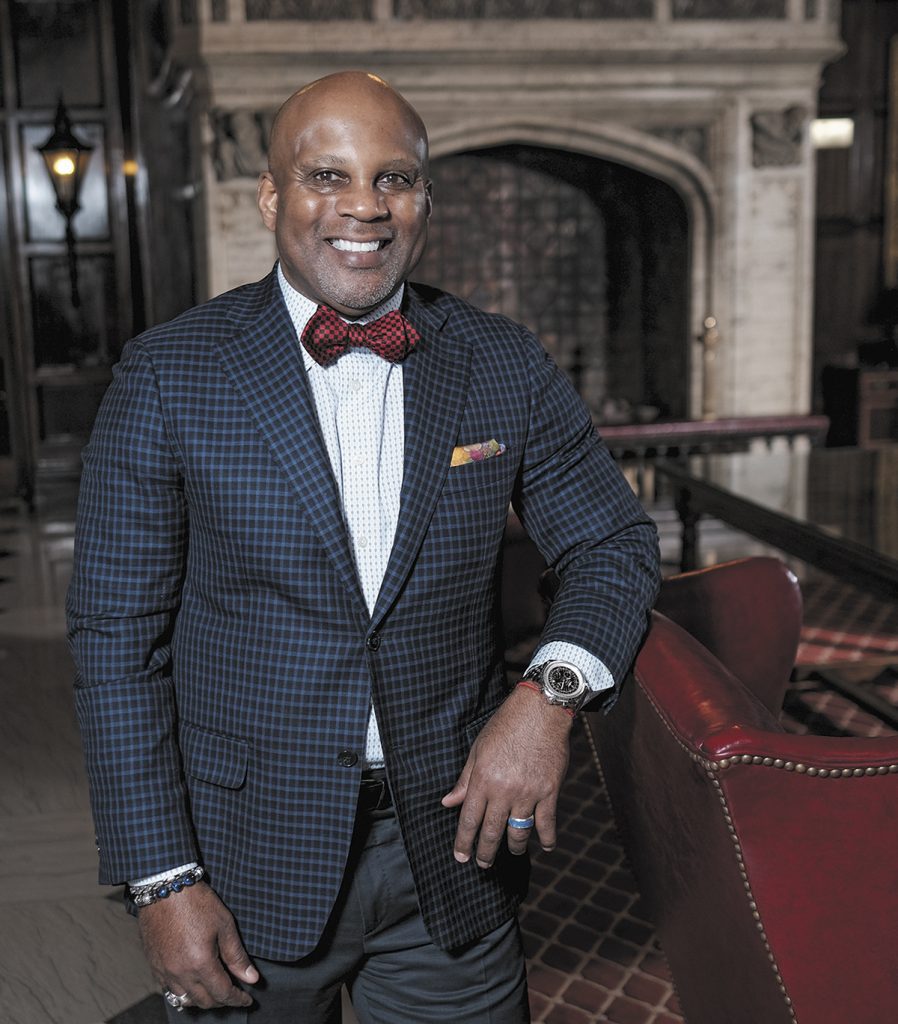Subscriber Benefit
As a subscriber you can listen to articles at work, in the car, or while you work out. Subscribe NowAlan Mills’ experience as a top-flight litigator, counselor, advocate and team-builder have involved him in a wide array of complex matters. Among the legion of these is his current assignment as official financial institutions counsel to the government of Mexico. More than this, he’s been a model of civility and a passionate advocate for diversity in a career that’s won him numerous accolades. Active in many community arts endeavors, one colleague noted Mills is a collector of fine art as well as a collector of relationships.
A colleague described you as “a champion of diversity.” What does that mean to you?
To me, it means in every aspect of my practice I try to include people of color and create opportunities for them to be successful. This means also having hard conversations with them about what they must do on their side of the table. It also means talking with clients about what diversity and inclusion really means and how its reality can be successfully implemented. I think in this area you cannot be shy. Some conversations are uncomfortable but ultimately necessary. The important point is to keep the dialogue going.
What is involved in your role as official financial institutions counsel to the government of Mexico?
For years, I helped Mexican nationals with financial issues in the United States. Some were individuals with little wealth, and some were not. I just feel that helping people unfamiliar with our judicial system navigate that system is an important part of my lawyering.
What’s a great piece of advice you’ve received that makes a personal difference?
The advice came from Dr. Frank Lloyd when I first came to Indianapolis years ago. He said, “Alan, people will use you. Do not get angry. Figure out what you can get out of it for your community.” It was painful but true advice.
As a fine art collector, what are you currently looking for?
Finally, a question I really like! I like both figurative and abstract art, but probably figurative art a little more. There are a number of young, thoughtful African American artists now and I am trying to support them. I have pieces from Hank Willis Thomas, Whitfield Lovell and others. I am now working with Azikiwe Mohammed on a special piece that I am really excited about. I also like the work of Anthonia Nneji. I have two of her wonderful pieces. I want the artists I collect to say something about the world around them, to challenge me to think broader and better, and to show me beauty even when it is ugly and raw.
Who is someone who mentored you, and what did you learn from them?
I was very fortunate to have mentors in the African American community and inside the law firm. From Dr. Lloyd and Bill Mays, I learned to always stay connected with the community, because at the end of the day that is “home.” I learned how to practice law from my great partner Herb Snyder. He emphasized excellence and settled for nothing else. And then from my dear friend Jim Strain, whom years ago I sent a note thanking, I learned to keep my mouth shut sometimes and let others fight my battles. He fought a couple of mine.
What advice would you give your younger self?
Slow down. You will live much longer than you think you will.
What’s something you’ve learned from teaching others?
Everyone has a place, a value and a dream. My job is to understand how a new lawyer thinks to help him or her get to that place, value and dream.
What has been the most personally rewarding aspect of your legal career?
I have been able to train some very fine lawyers and open doors for them that were only cracked when I started. That feels good. It is also rewarding that my son has chosen this profession. I was very surprised by the choice. Along with his choice, two of his very close friends became first-generation lawyers in their families. Influencing them to do that was very gratifying.
What do you most like to do when you have free time?
Those who know me know that jazz and art are my great loves. I wish I could play the saxophone and sit in with Coltrane, Rollins and Henderson. I wish I had interviewed Johnny Hartman. I heard Shirley Horn and Betty Carter in the ‘70s in Washington, D.C., and was starstruck! As for art, I love what the young artists are doing. Yes, I have some of the “dead guy” art, but I want to give the young folks a chance to earn my business. I have a good eye but no artistic talent!
If you hadn’t pursued a legal career, what do you imagine you might be doing?
Playing jazz, running a gallery and listening to the young people of many colors who are part of the Black Lives Matter movement.•
Please enable JavaScript to view this content.

